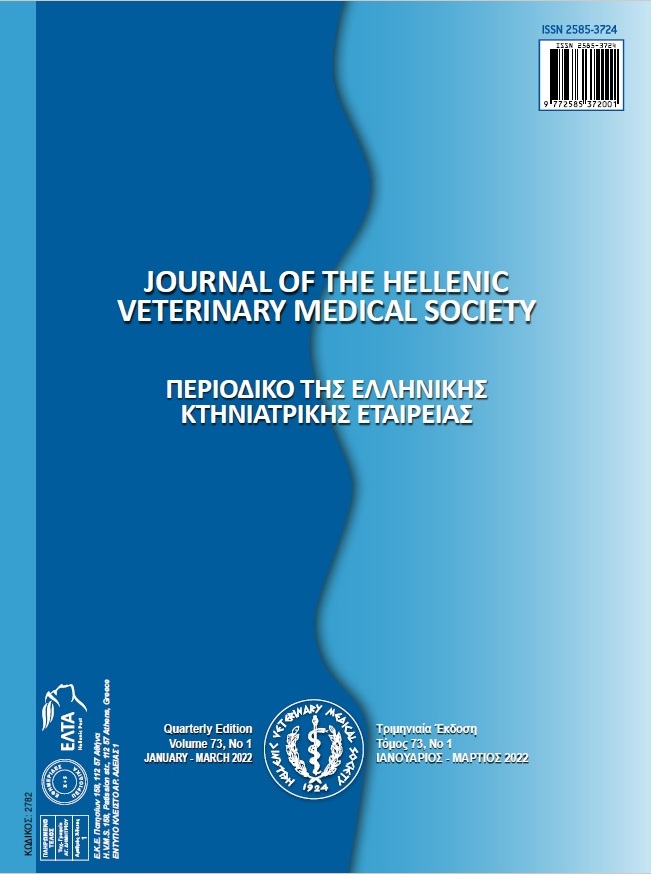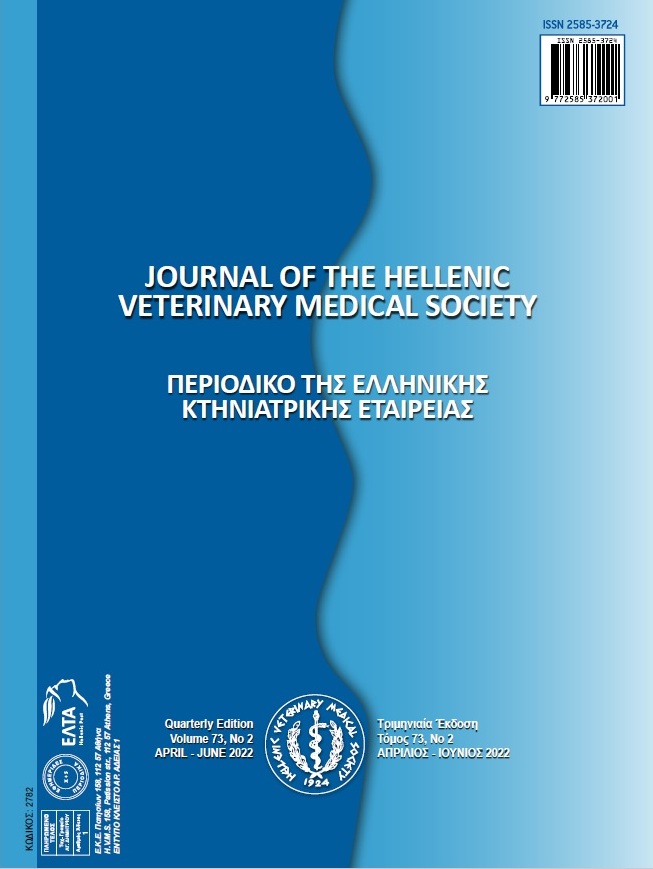The seroepidemiology of pestivirus infection in sheep in Afyonkarahisar province of Turkey and the analysis of associated risk factors
Abstract
Border disease virus (BDV) is a pestivirus that causes considerable economic losses in the sheep industry due to its effect on breeding and health. This study's goal was to determine the seroprevalence of pestivirus infection, the ratio of persistently infected (PI) animals, and risk factors associated with the disease in sheep flocks between 2019-2020. To this end, 460 blood serum samples collected from eight sheep flocks were examined using commercial Enzyme-Linked Immuno-Sorbent Assay (ELISA) test kits to determine the presence of antibodies (Ab) and antigens (Ag) against pestiviruses (bovine viral diarrhea virus, border disease virus). Risk factors associated with pestivirus infection were statistically evaluated in terms of significance in the logistic regression model according to epidemiological data and information obtained from flock owners. Individual seropositivity was analyzed by Generalized Estimating Equations (GEEs) for associated responses. The overall apparent animal level seroprevalence was estimated to be 24.57% (95% CI: 20.85-28.7). The overall true seroprevalence was calculated to be 25.51% (95% CI: 21.65-29.60). The rate of positive sheep in each flock varied between 8.33-57.14%. The ratio of PI sheep among the 460 animals tested was found to be 0.43%. The relationship between the age groups was statistically significant (p-value:0.0002<0.05; χ2:13.15). Management type, age, the presence of cattle in the farm, landscape and the status of other clinical diseases were identified as important risk factors associated with individual pestivirus seropositivity. The results of this study indicate that it will contribute to the creation of national control eradication and monitoring plans and the development of strategies and that the potential risk of sheep as a pestivirus reservoir, especially for cattle that use common pastures, should be considered in future studies.
Article Details
- Come citare
-
INCE, O. B. (2022). The seroepidemiology of pestivirus infection in sheep in Afyonkarahisar province of Turkey and the analysis of associated risk factors. Journal of the Hellenic Veterinary Medical Society, 73(1), 3809–3816. https://doi.org/10.12681/jhvms.25849
- Fascicolo
- V. 73 N. 1 (2022)
- Sezione
- Research Articles

Questo lavoro è fornito con la licenza Creative Commons Attribuzione - Non commerciale 4.0 Internazionale.
Authors who publish with this journal agree to the following terms:
· Authors retain copyright and grant the journal right of first publication with the work simultaneously licensed under a Creative Commons Attribution Non-Commercial License that allows others to share the work with an acknowledgement of the work's authorship and initial publication in this journal.
· Authors are able to enter into separate, additional contractual arrangements for the non-exclusive distribution of the journal's published version of the work (e.g. post it to an institutional repository or publish it in a book), with an acknowledgement of its initial publication in this journal.
· Authors are permitted and encouraged to post their work online (preferably in institutional repositories or on their website) prior to and during the submission process, as it can lead to productive exchanges, as well as earlier and greater citation of published work.




